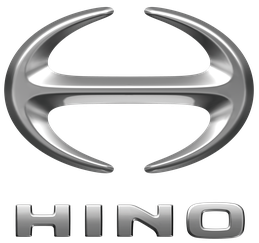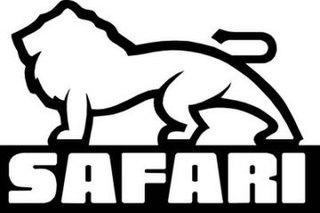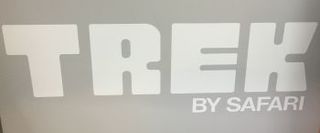
Pin1Code

Motor Coach Industries (MCI) is a multinational bus manufacturer, specializing in production of motorcoaches. Best known for coaches produced for intercity transit and commuter buses, MCI produces coaches for a variety of applications, ranging from tour buses to prison buses.
Tata Motors Limited, formerly Tata Engineering and Locomotive Company(TELCO), is an Indian multinational automotive manufacturing company headquartered in Mumbai, Maharashtra, India. It is a part of Tata Group, an Indian conglomerate. Its products include passenger cars, trucks, vans, coaches, buses, sports cars, construction equipment and military vehicles.
The Fuller Brush Company sells branded and private label products for personal care as well as commercial and household cleaning. It was founded in 1906 by Alfred Fuller. Consolidated Foods, now Sara Lee Corporation, acquired Fuller Brush in 1968. In 1991, the company was placed in private ownership but, in 1994, it became a subsidiary of CPAC Inc., which from 2007–2012 was owned by the private equity group Buckingham Capital Partners. From December 2012 through Dec 2017, the Fuller Brush Company was owned and operated by David Sabin and Victory Park Capital. Since January 2018, the Fuller Brush Company has been owned and operated by Galaxy Brush LLC, located in Lakewood, New Jersey.
Navistar International Corporation is an American holding company created in 1986 as the successor to International Harvester. Navistar operates as the owner of International brand of trucks and diesel engines. The company also produces military vehicles through its Navistar Defense subsidiary along with bus production through IC Bus. Currently, Traton SE is the largest stakeholder of Navistar, owning 17% of the company.

IC Bus is an American bus manufacturer. Headquartered in Lisle, Illinois, IC is a wholly owned subsidiary of Navistar International with its manufacturing base in Tulsa, Oklahoma. Established in 2002 by Navistar through the reorganization of subsidiary manufacturer American Transportation Corporation (AmTran), IC currently produces school buses and commercial-use buses for multiple applications.
DINA is a Mexican bus and truck manufacturer based in Ciudad Sahagún, Hidalgo (state), Mexico. It was created by the Federal Government of Mexico in 1951. It is currently owned by Grupo Empresarial G and its subsidiaries since 1989. The company has gone through several stages of production of freight and bus models throughout its history, thanks to technological and commercial agreements and partnerships with various companies. International companies such as Fiat, Renault, Flexible, Cummins, Perkins, Chrysler, Caterpillar, Scania, MCI, Skoda, Spicer, Eaton, Dana. Today its main production is buses for urban and foreign use, and they have developed their truck technology with a subsidiary of BMW.

American Transportation Corporation was an American manufacturer of school bus bodies. Founded in 1980, the company traces its roots back to Ward Body Works, established in 1933. Following the 1979 bankruptcy filing of Ward Body Works, AmTran was formed; in 1991, the company was acquired by Navistar International, a move that would begin a series of alignment between school bus body manufacturers and chassis suppliers. The AmTran corporate headquarters and manufacturing facilities were located in Conway, Arkansas.

Hino Motors, Ltd., commonly known as simply Hino, is a Japanese manufacturer of commercial vehicles and diesel engines headquartered in Hino, Tokyo. The company is a leading producer of medium and heavy-duty diesel trucks in Asia.

Thor Industries, Inc. is an American manufacturer of recreational vehicles (RVs). The company sells towable and motorized RVs through its subsidiaries brands including Airstream, Heartland RV, Jayco, Livin Lite RV, and others. The company's headquarters is in Elkhart, Indiana. It has manufacturing facilities in Michigan, Ohio, Indiana, Idaho, and Oregon.

Monaco is a recreational vehicle (RV) brand, manufactured in Decatur, Indiana, and wholly owned by REV Recreation Group. Monaco holds a portfolio of Class A diesel motorhomes. REV Recreation Group is a subsidiary of REV Group.

JAC Motors is a Chinese state-owned automobile and commercial vehicle manufacturer. The company is based in Hefei, Anhui Province, China.
Marmon Motor Company was a Texas-based manufacturer of exclusive trucks from 1963 through 1997.

Holiday Rambler Corporation is an American corporation which primarily manufactures recreational vehicles. It was founded in 1953. In 1961, Holiday Rambler’s introduction of aluminum body framing ushered in a new era of lighter, stronger and more durable recreational vehicles (RVs). This aluminum frame (Alumaframe) became the standard for lighter and stronger RVs for 40 years. Holiday Rambler was also responsible for many firsts; built-in refrigerators, holding tanks and aerodynamic radiused corners. As Holiday Rambler moved into motorhomes, they were the first with tag axles and the kitchen slide-out revolutionized "interior engineering" in the field. Holiday Rambler was sold to Harley-Davidson in 1986 and later in 1996 to the Monaco Coach Corporation where its future, then under Navistar International Corp., was difficult in 2010 as it was for most motorhome manufacturers.
Wayne Wheeled Vehicles (WWV) was a tradename of a division of a vehicle manufacturer that specialized primarily in the production of school buses. It was owned by Harsco Corporation, who purchased the rights to use the Wayne brand name, certain product rights, as well as parts and tooling during the liquidation of assets of the Wayne Corporation in late 1992.

Ward Body Works was a defunct American bus manufacturer. Headquartered in Conway, Arkansas, Ward specialized in yellow school buses, alongside buses for other uses. Founded in 1933 by D.H. "Dave" Ward, the company was family-owned for nearly its entire existence.
Joseph (Joe) Mimran is an Moroccan-Canadian fashion designer and entrepreneur who is best known for launching the Club Monaco and Joe Fresh brands. In 2015, he was announced as one of the new dragons on Season 10 of the Canadian version of the 'reality' television series Dragons' Den.

REV Group is an American manufacturer of specialty vehicles, including buses, fire trucks, ambulances, and recreational vehicles.

Safari Motorcoach Corporation is a defunct American motor coach manufacturing company that was based in Oregon. The company's manufacturing plant was initially located in Harrisburg. The Safari Coach brand name was purchased by Monaco in 2002, however the Safari Coach name was no longer being used as of 2009.

The Safari Trek was a line of Motorhomes built by the Safari Motorcoach Corporation (SMC) based out of Harrisburg, Oregon. The Trek line was developed in the late 1980s with some early model prototypes. The first official model year began in 1991 and ended in 2001 under the Safari Motorcoach Corporation banner. In 2001 SMC was purchased by Monaco Coach who took over the production of subsequent model years. The early pre-Monaco Trek's now hold a venerated status among Safari RV enthusiasts-"Trekkies". This is in part due to the Trek's patented "Electro-Majic Bed" which provided for spacious floor plans. There was as well an exceptionally high build quality that used a riveted aluminum outer skin in lieu of the more popular tin or fiberglass, real hardwood cabinetry, and a small bus like design that made the Trek easy to drive and maneuver. In 2009 Monaco Coach filed for chapter 11 bankruptcy ending the "Safari Trek" line of motorhomes. The exact production numbers of the early pre-Monaco Treks have never been officially released, but estimated to be approximately 200 per year at peak production during the ten-year run. Much of this is derived from former employees and customers who took the factory tours that Safari Motorcoach Corporation would give to potential buyers. Since there is no official registry, it is difficult to know how many are still on the road today.













